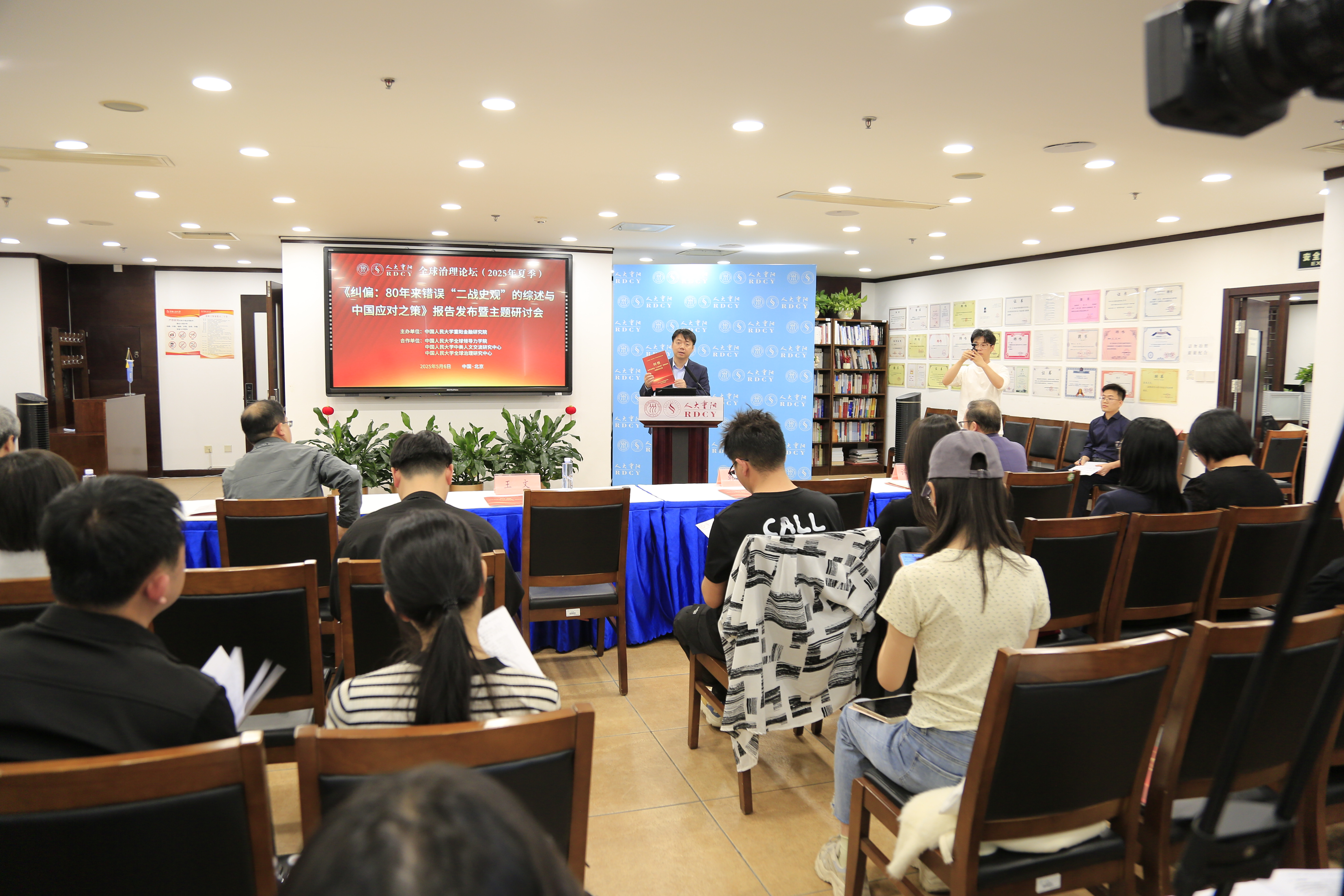Past Events
Your Present Location: EVENTS> Past EventsThink Tank Report Warns: These Four False Views of World War II History Have Harmed the World for 80 Years

On 6 May, 2025, to commemorate the 80th anniversary of the World Anti-Fascist War, Chongyang Institute for Financial Studies, Renmin University of China (RDCY) held the 'Correcting the Wrong World War II Historical View' Report Release and Theme Seminar in Beijing.
The seminar released the think-tank report 'Correcting Errors: An Overview of the 80-Year Erroneous. Historical View of World War II and China's Response.' The report systematically outlines four major distorted views of WWII history, arguing that with the U.S. and the West positioning China and Russia as 'revisionism of the international order,' a set of erroneous historical narratives serving geopolitics has gradually taken shape, centred around the following The four distorted views of history, namely, 'Neglecting China's Role,' 'Western Role Priority,' 'WWII only Began in 1939 and Ended in 1945,' 'Japan is a Victim.' These are not mere academic oversights, but carefully constructed political tools aimed at undermining China and Russia's international discourse by reshaping historical memory.
The report highlights that the 'Neglecting China's Role' theory has long portrayed China as a 'victim of the Axis powers' or a 'weak country reliant on the Allies for rescue', with the aim of shaping international public opinion and marginalizing China's role; The 'Western Role Priority' theory over-emphasizes the dominant position of the West in the victory of WWII, and downplays or belittles the historical roles of the Soviet Union and China; the 'WWII only Began in 1939 and Ended in 1945' theory restricts the starting point of WWII to the invasion of Poland by Germany in 1939, and ignores the historical fact of Japan's invasion of northeastern China in 1931. Meanwhile, the 'Japan is a Victim' theory ignores Japan's crime of aggression and unilaterally dramatics the tragedy of the atomic bombings of Hiroshima and Nagasaki in an attempt to cover up the atrocities of aggression committed by Japan against the Asian countries.
In terms of practical dangers, the report identifies several issues. First the history of China's war of resistance has long been absent from the Western view of WWII, and China's contribution to the war of resistance has been neglected, leading to a blurred of the Western public's perception of China's position on the war of resistance.
Second, Western academics have attacked China's contributions to the war, distorting the objective viewpoints as 'China's reinterpretation of history', and we must be vigilant against such bias and misinformation, so as to prevent it from evolving into a cultural and political suppression of China's rise to power.
Third, Western scholars have been erasing the Soviet Union's contribution to WWII, even claiming that 'the Soviet Union and Germany jointly initiated to WWII', in an attempt to assert their global leadership.
Fourth, Japan's right-wing forces have continued to manipulate public opinion and strengthen Japan's sense of 'victim-hood', which, when combined with the support of Western society, has further exacerbated historical bias, further shaped Japan's false image of itself as a 'forced respondent' to the war, and seriously weakened Japan's image as a victim of the war. This has further created a false image of Japan as a 'forced respondent during the war and seriously weakened the responsibility Japan should bear as a victim of the war.
The report also give five suggestion to overcome the current wrong narratives upon WWII globally. Overall, 2025 is the strategic opportunity for China to adopt a systematic academic and public opinion address against the four erroneous views of WWII history that have become popular in the West. By promoting international academic cooperation and strengthening media communication and cultural exchanges, we can ensure that historical truth is respected and widely disseminated. This is not only responsible for history, but also an important step for China's future status and influence in the international community.
Key Words: WWII, China, Japan, Western, Russia























































































 京公网安备 11010802037854号
京公网安备 11010802037854号





